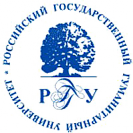Media and entertainment
In the 20th century, mass media became a principal means of communications and its objective was to provide people with as much information as possible on what is going on in the world. In the current 21st century, this role is changing, entailing the need to restrict information streams. Responding to this need, media resources are gradually turning from unique news sources into powerful filters, highlighting important messages and helping one become familiar with the agenda.
Even now, a user can set up a feed to read certain pages, or filter information on social networks using special add-ons. However, the convenience of such settings still leaves much to be desired. In the future, users will be able to create their own information streams and define their editing principles. Media software, such as search engines, information sorters and processors capable of creating customized information packages for users, will provide increasingly greater assistance in the sector. Moreover, computer services will develop for automatic translation, speech recognition, search, extraction, and sorting and processing of data (e.g. transformation of source data into complete news pieces, infographics, or text notes). However, mass media will retain its role, as many users will use standard settings, not wanting to influence what they get.
The notions of information objectivity and expertness will grow blurry, as the number of sources is growing too fast, making it practically impossible to assess their quality. This is why ordinary users will start switching to a more competent use of information. Educational curriculums will even include courses on collecting, interpreting and using data. Articles and books with advice on this topic are already popular, with examples such as Clay Johnson’s The Information Diet. The skill of verifying the quality of information will become part of basic literacy, on a par with reading or simple mathematics. Also, increasingly sophisticated software will be developed for verifying information and checking its sources.
The growing automation of the media sphere will take many journalistic functions from people and entrust them to machines. For example, the Associated Press has already acquired a new robot for writing short texts containing corporate income statements. Professional journalists will continue their work in formats requiring significant creative talents, e.g. independent journalism.
There will be a massive introduction of new technologies for stimulating human perceptive organs (olfaction, tactile sensations, taste, sense of gravity). New information channels will allow media and entertainment to achieve even closer and more real contact with the consumer. These techniques are being developed already. In 2013, a Japanese film theater showed a smell-enhanced presentation of Terrence Malick’s The New World, with scenes of grief and anger accompanied by scents of tea and eucalyptus, joyous events by citrus, and romantic episodes by flowers. 4D technologies (which are more frequently applied in amusement rides than theaters) enable the viewer to feel wind, water sprays, real-life movement, or a change of body position. Neural interfaces immersing the user in a synthetic reality will produce a giant breakthrough.
Games will become a most prominent means of entertainment, from urban quests involving augmented reality to massive events in virtual spaces. A secondary economy will also develop in virtual worlds, influencing the real-world economy. Virtual currencies, weapons, and armour are already for sale for real money, e.g. in games like World of Warcraft or Diablo 3.
Professions
Virtual world designer
Creates concepts for virtual worlds: philosophy, laws of nature and society, social interaction and economic standards, landscape, architecture, sensations (including smells and sounds), animals, and a social world.
Trends
Professional skills and abilities
Virtual reality architect
Specialist in designing solutions for work, studies, and leisure in virtual reality.Develops software and hardware based on the biological and psychological parameters of the user (including custom orders).
Trends
Professional skills and abilities
Emotion designer
Creates an emotional background for content, using new information channels, including pathways directed into the user’s brain. The designer controls the stimulation of sensory organs to create the necessary feelings and emotions of the user during content consumption.
Trends
Professional skills and abilities
Semantic field producer
Responsible for shaping a general worldview according to which, the media streams he/she controls will be created. This specialist controls content selectors that generate information streams for users within a given worldview, and performs high-level tuning of media robots. (A similar function in society is performed by “culture sommeliers” from Victor Pelevin’s S.N.U.F.F.).
Trends
Professional skills and abilities
Game practitioner
Organizer, creator of, and guide to, game universes in real and virtual spaces. Urban quests are now popular, from the Running City to games like Claustrophobia, designed for confined spaces. There are also alternate reality games (ARG), with very fuzzy boundaries between the real world and the game. Games like those will only spread in the future.
Trends
Professional skills and abilities
Media policeman
The media policeman is a law enforcer in the media sphere. Identifies transgressions by monitoring media resources personally and/or using special software. In Russia, this function is partly performed by Roskomnadzor (Federal Service for Supervision of Communications, Information Technology, and Mass Media) and the Safe Internet League. In the future, however, it will grow into a separate job due to increasing information abuse and cyber crime rates.
Trends
Professional skills and abilities
Media software designer
This specialist works in cooperation with psychologists, linguists and engineers to create software tools for finding, processing and distributing information on the Internet (search engines, semantic analyzers, aggregators, robots, writing).
Trends
Professional skills and abilities
Info stylist
Professional who selects information and a manner of presentation to match the requirements of a particular user. Today, the stream of content is offered to a user as a selection of recommended information products, based on geotargeting, the user’s search queries, or user interests which were specified in the user’s social network profile. This is done mostly externally, by an algorithm that someone created for their own purposes. In the future, people wishing to generate such a stream for themselves and by themselves will create demand for similar algorithms, which they will make themselves or order from relevant specialists.
Trends
Professional skills and abilities
Content aggregator editor
Manages information channels and selects content matching users’ expectations by adjusting search engines, aggregators and processors of information. The profession already exists in digital media. However, demand for it will grow together with the expansion of individual mass media. Eventually, the specialty will turn into a versatile competency.

























